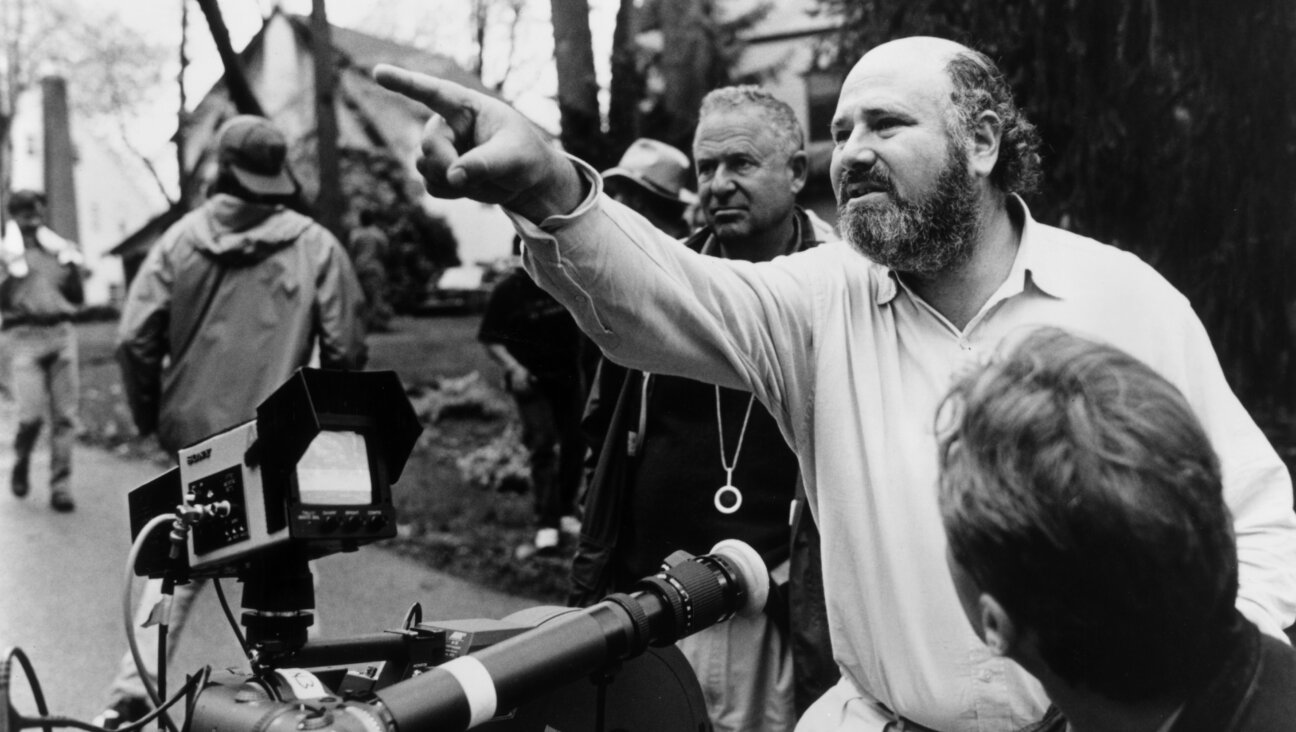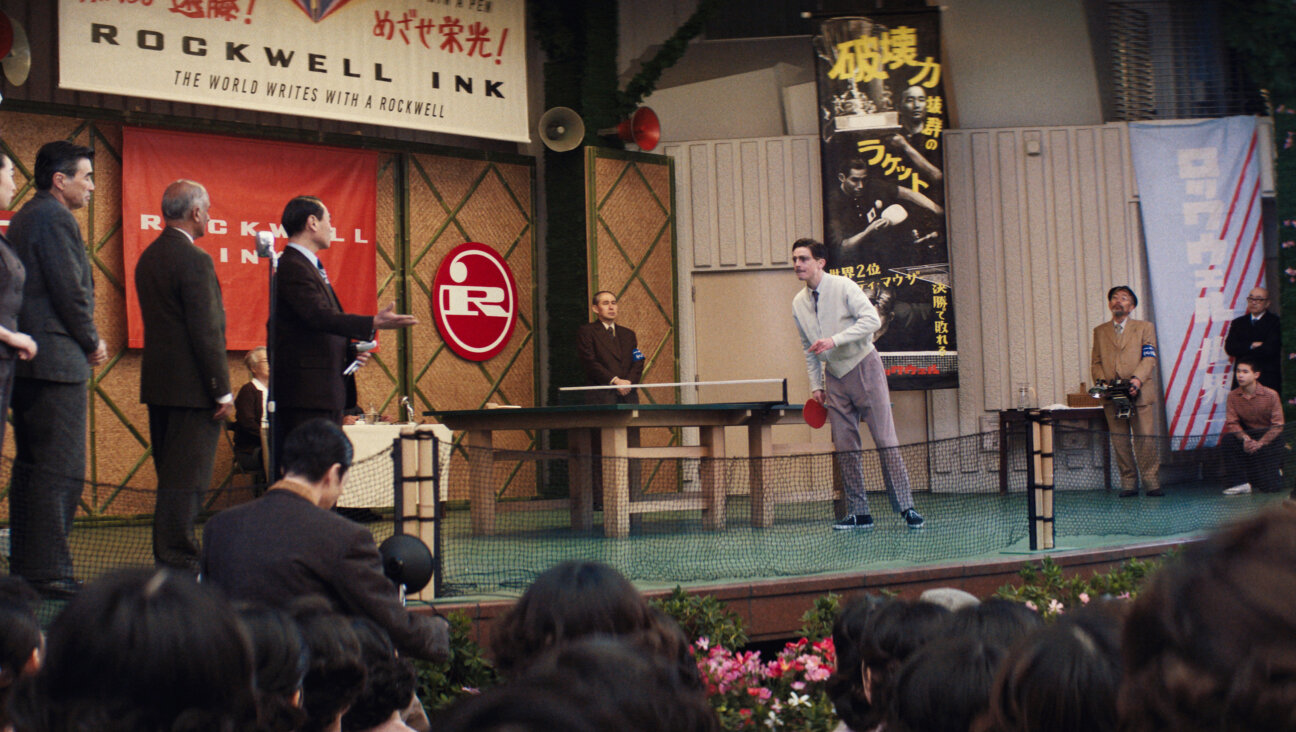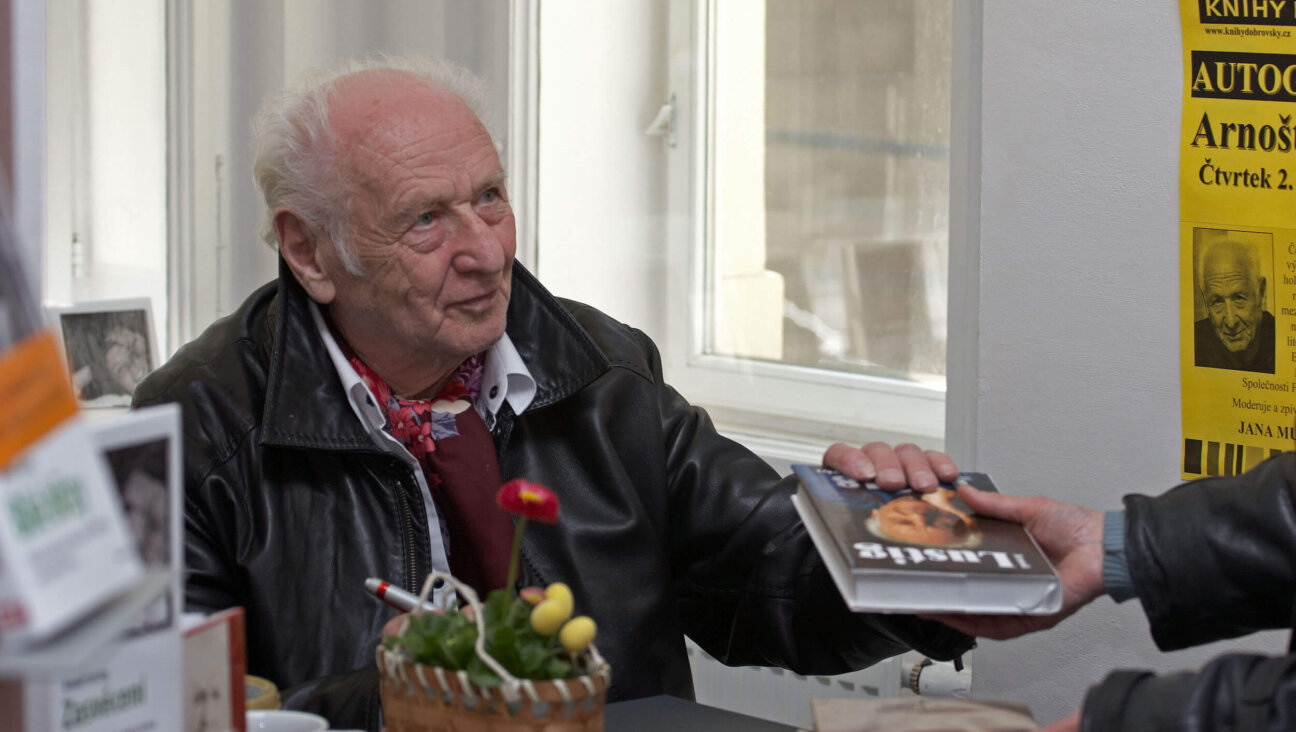Did Woody Allen Predict Donald Trump in ‘Bananas’?

Graphic by Angelie Zaslavsky
Donald Trump’s elevation to the White House has inspired two apparently contradictory sentiments among liberals. The first is a skittishness about the future of democratic institutions and constitutional rights. The second is a desire to escape, in both a literal and figurative sense — hightail it to Canada or avoid the homepage of The New York Times. Woody Allen reconciles those impulses in the film “Bananas,” a 1971 farce on authoritarianism, infotainment and leftwing activism.
Set in the fictional Central American country of San Marcos, “Bananas” chronicles the travails of Fielding Mellish (Woody Allen), a n’er-do-well twenty-something who travels there to impress love interest Nancy (Louise Lasser). Fielding is the quintessential loser. He works as a product tester after having withdrawn from college and lives bereft of female attention. Until he meets Nancy (Allen’s real-life first wife). She’s a student radical and her pet cause is fighting the regime in San Marcos, where an American-backed dictator faces a challenge from pro-democracy rebels.
After Nancy dumps him, Fielding flies to the hotspot in an effort to impress her. He meets the despot General Emilio Molina Vargas (Carlos Montalban), who invites him to dinner but secretly plots to have him killed. (The plan is to pin the death on the rebels and use it as an excuse to crush them.) But that’s not what happens — the revolutionary leader Esposito (Jacobo Morales) saves Fielding and brings him into the anti-regime fight. Soon the ragtag bunch seizes power, and Fielding gets the nod to become the president of San Marcos.
“Bananas,” the second film that Allen produced, directed and starred in, crafts a protagonist similar to the ones we see in later films such as “Annie Hall.” Fielding whines and worries in Alvy Singer fashion, even if Alvy’s a few steps ahead on the path of upward mobility. “Machines hate me,” he grouses to the other men in the locker room after a hard day’s labor. “I should be working at a job that I have some kind of aptitude for, like donating sperm to an artificial insemination lab.” When Esposito enlists Fielding on a mission, the latter balks, comparing himself to a timid animal. “I’m a good-sized sniveling dog,” he confides. “If you ever need a squirrel, call me.”
Allen also tips the hat to Jewishness. As Fielding and Nancy have sex, he tells her that he loves her. “Oh, please, say it in French. Please say it in French,” she pleads. “I don’t know French. What about Hebrew?” he responds. Looking for reinforcements against the rebels, Vargas accidentally phones the UJA (the United Jewish Appeal) instead of the CIA (Central Intelligence Agency). Hilarity ensues when Hasidic rabbis pour down the streets of the capital as the rebels besiege it.
“Bananas” offers the expected commentary on New York City, experiencing mounting troubles in the early ‘70’s. Greasers cross from one subway car to the next and beat up old ladies. Fielding opens his car door and steps out into a manhole. He locks the entrance to his Manhattan apartment with several deadbolts. But if New York has already descended into the fallen state of the crime wave, white flight and bankruptcy, the country has not yet suffered the same fate. As a product tester, Fielding experiments with office exercise machines and self-warming toilet seats — items that an affluent society manufactures as part of the fabrication of gratuitous “needs.”
But there’s great meaning in “Bananas” outside the regular (and delightful) sampler of New Yorkisms, nebbishes and Yiddishkeit. As we await the inauguration of President-elect Donald Trump, the film helps those who rue these days find some mirth in a miserable situation. There’s a fair amount of irony given our next leader’s unorthodox qualifications. “Look, fellas, I don’t want to be president,” Fielding tells a group hoping to push out Esposito on his behalf. “You’re making a big mistake. You gotta be smart to be a president.”
And there’s the absurdity. San Marcos peasants each must give the ruler his weight in horse manure in an annual custom. Vargas and his aides have to pay their own dinner bills at the presidential palace. Military operations are hampered when the dictator abandons the clothes-makers he usually frequents and instead opts for a faster, same-day tailoring service. In his brief tenure, Esposito issues arbitrary decrees — making Swedish the country’s official language and mandating that citizens wear their underwear over their pants.
Vargas and Esposito, in line with real-life dictators, are if nothing else campy, in Susan Sontag’s words from her “Notes on Camp,” “the proper mixture of the exaggerated, the fantastic, the passionate, and the naive.” That’s also a fitting description for the president-elect. He started his career by wrecking an Art Deco department store to construct a marble and gold edifice that more resembles a mausoleum than an apartment building. He demonstrated strange hangups on the campaign trail, fretting about germs and blasting Hillary Clinton for using the bathroom. He managed to turn the sedate political rally — with its signs, podium, crowds and big screen — into alternately karaoke hour, brag-and-insult fest and mosh pit.
“Bananas” does more than highlight the campiness of the authoritarian — it also hints at the accelerating merger of information and entertainment that is itself campy. The curtain rises and falls with old-time sports anchor Howard Cosell narrating events — Vargas’ coup against his predecessor at the start and Fielding’s wedding night with Nancy at the end — in staccato rhythm and bemused tone for the home audience. During the unrest in San Marcos, he even hunches over the body of the dictator Vargas has toppled, requesting comment from the poor fellow as he expires.
Cosell laughs from a remove at the violence and sex. That’s problematic because it militates against the correct emotional responses in both situations — sadness in the first and hesitancy in the second. That sort of distortion was on display throughout the election season. Trump leavened his toxic rhetoric with name-calling, impressions and stunts campy enough to dispel some of the outrage that might have accompanied a serious recitation of his racism, sexism and xenophobia. It proved hard not to chuckle when he distributed a rival’s personal telephone number, developed novel insults for enemies or attempted to do foreign accents. Allen wasn’t exactly in terra incognita by looking at infotainment, but his themes nonetheless feel prescient.
San Marcos and its characters Vargas and Esposito, these are through the looking glass. But President Donald Trump will in two months be our reality. And that’s enough to make someone want to go bananas.
Contact Daniel J. Solomon at [email protected] or on Twitter @DanielJSolomon















